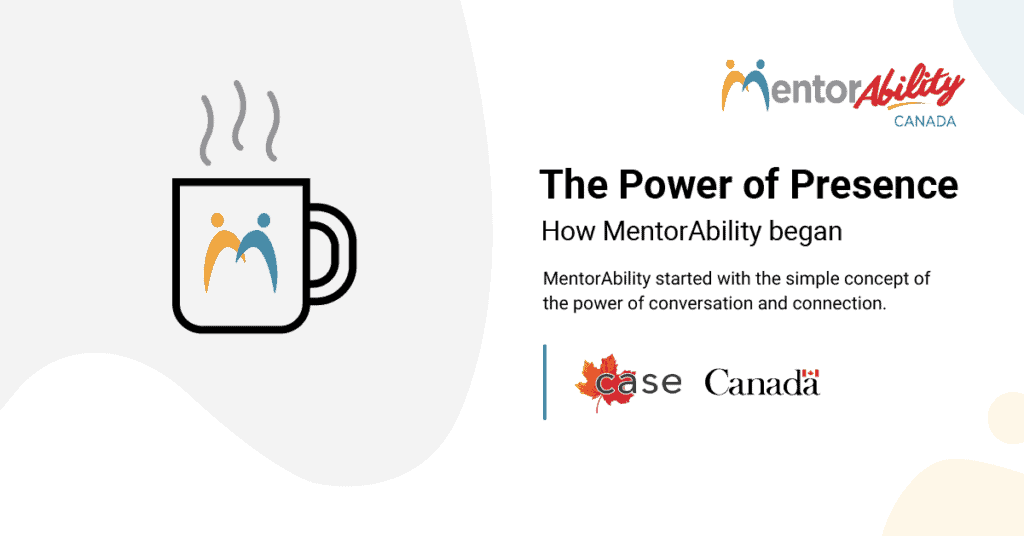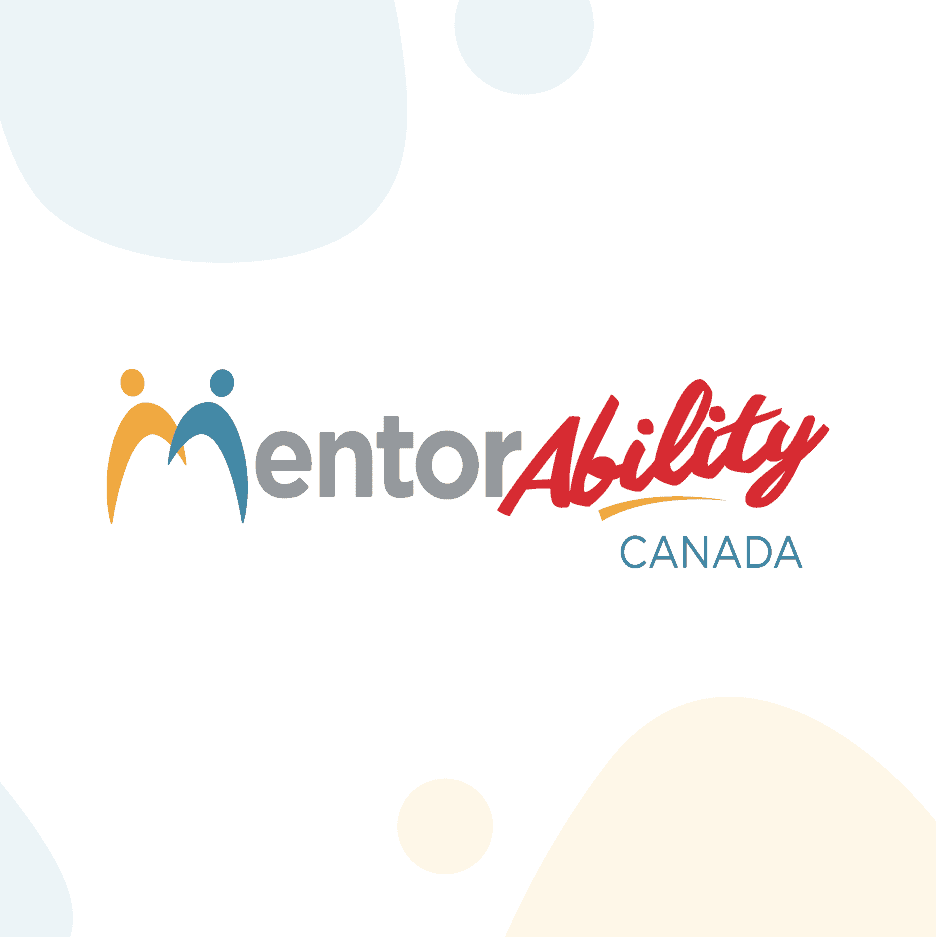Mentorability Experience

How MentorAbility Began
MentorAbility was born over a cup of coffee — the way many great ideas are. It soon evolved into an innovative initiative that facilitates social change through the power of conversation, collaboration, and connection.
MentorAbility Canada

Sometimes a spark is all that you need!
From a presentation to the CASE board of directors about a mentorship idea, to a continued conversation over coffee the next morning, sprung the innovative idea to connect employers and job-seekers and create beneficial mentorship opportunities.
Pilot projects emerged in British Columbia and Saskatchewan, with growing popularity, and MentorAbility success stories started to spread! In 2019, CASE received federal funding and MentorAbility began a powerful national initiative.
The power of presence.
MentorAbility was born over a cup of coffee—the way many great ideas are. It soon evolved into an innovative initiative that facilitates social change through the power of conversation, collaboration, and connection.
In 2015 in Toronto for an annual strategy session, most members of the CASE board of directors met for an early coffee and breakfast. The night prior, CASE’s interim executive director had shared an article about an initiative called 10,000 Coffees that sparked lively conversation.
The goal of 10,000 Coffees was simple enough: to facilitate informal conversations, perhaps over coffee, between job seekers and CEOs or decision-makers in a field of interest. In other words, a pressure-free way to spark career development and forge connections.
The board of directors mused: how could they apply the 10,000 Coffees concept to the disability sector?
“We’d been trying to figure out ways to help job seekers — protégés as we call them now — engage more with employers,” Joy says. “We thought maybe we could take a similar approach”.
“We could introduce employers to interested job seekers, making clear that it’s not about hiring the individual, but about offering the protégé the opportunity to ask questions, to see if the field is really what they are interested in.”
CASE president Annette Borrows, decided to take the idea and run with it in her home province of British Columbia. Joy did the same in Saskatchewan and, in the fall of 2015, pilot mentorship programs launched in both provinces.
“That first year we just did it off the sides of our desks,” Joy says. “We set up nine mentoring experiences here in Saskatchewan on one day, the first Wednesday of October.”
In British Colombia, 69 protégés and 50 employers engaged in mentorships in the first year alone! In the coming years, both British Colombia and Saskatchewan continued to offer mentorship opportunities during the month of October. Annette Borrows shared that “Supported Employment Specialists and employers were quickly recognizing the benefits of mentoring. MentorAbility started to gain momentum year-round, not just in October.”
Joy reflected that, “When we first approached employers about having someone come and shadow them for a few hours, we actually told the employer they couldn’t hire the protégé. We were very clear: ‘It’s not about you hiring individuals, it’s about the shared experience in the workplace.’
“But we knew that when we brought the two people together, in many instances it would work,” she continues. “And it did. Often the employer would come back to us and say ‘oh that person was great! We’d love to hire them.’
“That first year, of those nine proteges, five were offered jobs. And these were employers that had never hired a person experiencing disability before. It’s the power of presence. Meeting interested, knowledgeable protégés changes everything.”
Encouraged by the success of the pilot projects, CASE sought to offer the initiative more broadly. In 2019, CASE received federal funding which transformed MentorAbility into the powerful national initiative it is today.
MentorAbility continues to evolve. The national network of provincial hubs is strengthening, thanks to committed supported employment service providers. Covid-19 drew into focus the necessity, and ongoing opportunity, of virtual mentoring.
“It’s really exciting to see the growth,” Joy says. “The work that has been done in three years is phenomenal”.
“Is the work done yet? No, it’s not. The more advocacy we can do the better. The more employers that are offered the opportunity to do mentorships, the better. I just think they will be blown away by the talent that is out there, who aren’t working just because they are being overlooked.”

